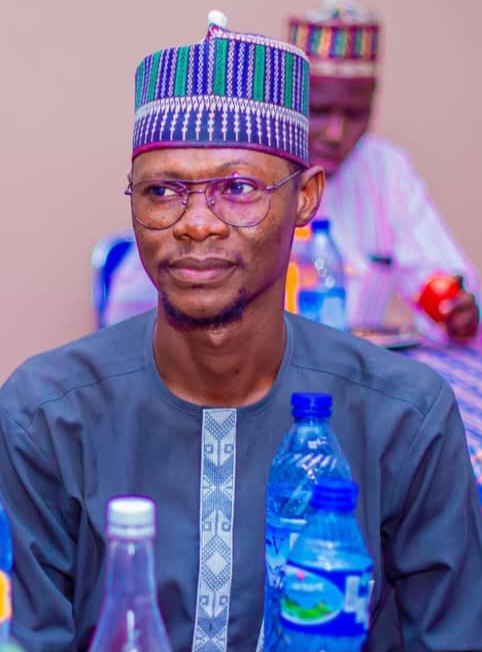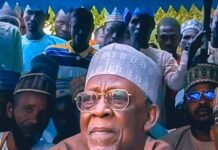Uromi Killings and the Threat to Tolerance: FG and NOA must look beyond unity schools and NYSC programme, by Usman Yusuf Dole
…What God has joined together, no man should put asunder
Nigeria, a country known for its diversity, has long sought mechanisms to foster national unity and tolerance among its citizens. While initiatives such as Unity Schools and the National Youth Service Corps (NYSC) programme have played a significant role in bridging ethnic and religious divides, these schemes remain limited in their reach. The Federal Government (FG) and the National Orientation Agency (NOA) must actively engage in broader campaigns promoting peace, tolerance, and unity across all segments of society.
READ ALSO: Uromi Massacre: Edo gov visits victims’ families in Kano, promises justice
Unity Schools and NYSC expose only a fraction of the Nigerian populace to the values of unity and tolerance. As a beneficiary of both initiatives, I can attest to their impact. However, they are insufficient in addressing the deep-rooted challenges of division and intolerance. If we all acknowledge that we belong to one country, Nigeria, then it is imperative to reinforce the principles of peace and coexistence as binding forces that unite us.
Historically, Nigeria has been a diverse and fragile nation, yet this should not discourage efforts toward a more united and tolerant society. Over the years, the FG has introduced schemes like Unity Schools and NYSC to bridge ethnic and religious gaps. While these programs have not completely failed, they have not reached their full potential either.
I recall my time at the Federal Science and Technical College (FSTC) Doma, where, despite being the Ameer (MSSN President) and Deputy Head Boy, I experienced love and parental care from my Igbo school parents, Mrs. Iwu Jacqueline and Mrs. Akpam Godspower. I often spent my midterm breaks at Mr. Akpam’s house, receiving warm treatment. Similarly, during my 21 days at NYSC camp, I forged a lifelong friendship with Dr Ebuka and Dr Chike, further reinforcing the essence of unity that these programmes aim to instil.
These efforts by the FG serve as reminders that we are one people who need each other. However, how many Nigerians truly experience such programmes? After years of investment, the results still seem inadequate in fostering a united Nigeria.
The recent atrocities in Edo and other similar cases are stark reminders that we have much work ahead in terms of unity and tolerance. Jungle justice is not only a threat to national unity but also a grave danger to our security intelligence and judicial system. This continued lawlessness paints Nigeria as a hostile country on the international stage. A nation where citizens take the law into their own hands—especially through extrajudicial killings—cannot achieve meaningful development. The FG must address this menace with strong political will.
As a firm believer in the Nigerian project, I see myself beyond my Northern and Muslim identity. I strive to maintain an open mind because I believe that Allah has a purpose for creating us within one country. The true teachings of my religion do not permit harm to animals, let alone fellow human beings. Any deviation from this principle stems from personal interests rather than religious or moral directives.
The recent jungle justice incident involving 16 hunters, along with similar cases, is a wake-up call for the government to take urgent steps to unite the people beyond political, regional, and ethnic divides.
Beyond NYSC and Unity Schools: A Call for a Holistic Approach
To genuinely address the threats to tolerance, the FG and NOA must adopt a more comprehensive and contemporary strategy:
✓. Strengthening Grassroots Orientation Programmes
National programmes are important, but local engagement is crucial. The NOA should intensify grassroots efforts by promoting interfaith and interethnic dialogues within communities. These initiatives should not be limited to students and corps members but should also involve market traders, artisans, religious leaders, and traditional rulers.
✓. Engaging Religious Bodies to Prioritise Teachings on Unity and Tolerance
No religion promotes intolerance or taking the law into one’s hands unjustly. Religious scholars play a crucial role in fostering a peaceful and united Nigeria. Their teachings should emphasize love, coexistence, and the consequences of hatred and division.
✓. Media and Digital Campaigns
In the age of social media, divisive narratives spread rapidly. The FG and NOA should invest in digital campaigns that counter ethnic and religious bigotry. Positive messaging through influencers, entertainment, and targeted online discussions can reshape public perceptions and attitudes.
✓. Reforming Civic Education in Schools
National unity must be instilled from an early age. The school curriculum should be revised to emphasise Nigeria’s diverse cultures, the importance of coexistence, and conflict resolution strategies.
✓. Economic and Social Inclusion
Economic disparity is a significant driver of intolerance. When certain groups feel marginalised, they become more susceptible to divisive rhetoric. Government policies must ensure the equitable distribution of opportunities to foster a sense of belonging among all Nigerians.
By implementing these strategies, the FG and NOA can reinforce the message that Nigeria is one indivisible entity, where peace and tolerance are the cornerstones of national development.
Follow the Neptune Prime channel on WhatsApp:
Do you have breaking news, interview request, opinion, suggestion, or want your event covered? Email us at neptuneprime2233@gmail.com





